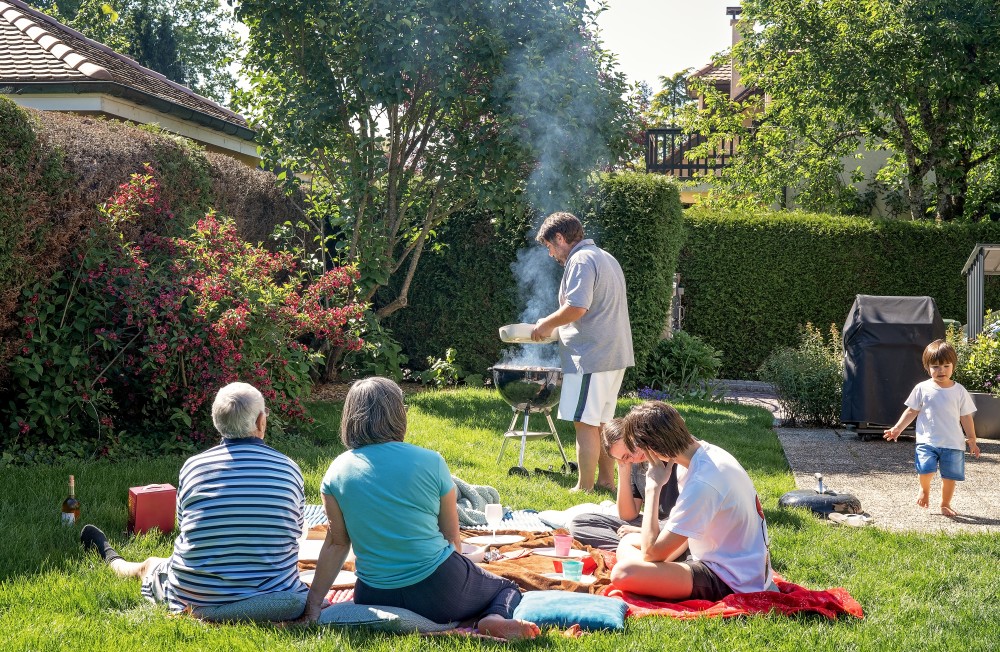Commentary June 8, 2021
Suburbs Are Not Less Social Than Cities

AEIdeas
Popular culture and academia alike are quick to celebrate the vibrant social life of urban spaces while lamenting the sprawling emptiness and privacy of rural and suburban America. Take Lin-Manuel Miranda’s musical In the Heights, a vibrant depiction of bustling life in New York’s Washington Heights neighborhood, in contrast to the solemn words of historian Kenneth T Jackson: “There are few places as desolate and lonely as a suburban street on a hot afternoon.” And, like Miranda, the band Green Day chronicled the opposite facet of American life in its musical, American Idiot, which focuses on the empty life of suburbia and stifling suburban wastelands.
Of course, there are just as many urban areas devoid of street life as there are intensely social suburbs. Still, many believe there are meaningful differences in sociability based on where Americans reside. New data from AEI’s Survey Center on American Life and its new report, “The State of American Friendship,” counters this narrative and finds little difference in the social lives of urbanites, suburbanites, and their rural counterparts.

The data from the May 2021 American Perspectives Survey reveals few differences in the socialization and friendship habits of those living in urban, suburban, and rural areas. Fifty-one percent of Americans who live in urban areas and suburban areas say they are completely or very satisfied with the number of friends that they have. Rural-dwelling Americans are not far behind their more densely packed counterparts, with 50 percent stating they are satisfied with their number of friends.
Feelings of loneliness and isolation can manifest as easily in dense cities as in sprawling suburban and rural areas. About a quarter of urbanites, suburbanites, and rural Americans reported feeling lonely or isolated at least a few times in the past year (27 percent, 25 percent, and 26 percent respectively). Approximately two-thirds of each residential type report the past year was more difficult to manage than usual. Urban, suburban, and rural Americans all struggled in the wake of the COVID-19 pandemic — no one location was a panacea.
Differences in friendship across urban areas are minor to non-existent. Thirty-seven percent of Americans who live in urban, suburban, and rural conurbations all report having one to three close friends. Ten percent of urbanites report having no close friends compared 14 percent of those in suburban and rural areas. Despite prolonged periods of social isolation and quarantine that characterized much of American life over the past year, nearly half (46 percent) of Americans report having made a new friend within the past 12 months — again, with no appreciable variance by urban form.
Across cities, suburbs, and rural communities, Americans are making friends in similar ways. Fifty-five percent of suburban and rural respondents have made close friends through employment or career channels, while urbanites are somewhat less likely to do so (52 percent). Almost half have met close friends through their own educational paths. Roughly a third of Americans in each urban form report meeting close friends in their neighborhood. Rural and suburban Americans are not lacking in social connection compared to those living in urban areas; equal numbers of neighbors become close and intimate friends regardless of spatial order.
Spatial differences do appear with respect to discussing politics and government with friends. Those who reside in urban areas are more likely to engage in political discussion with friends compared to those living rural and suburban areas. While almost half of urban dwellers talk about politics (49 percent) at least a few times a month, fewer do so within suburban (42 percent) and rural areas (43 percent). This difference is understandable. In high-density cities, protests and the vestiges of local politics are often more visible on the street and in public, making government and its direct outcomes generally harder to avoid when compared to sprawling, private, and isolated communities outside of cities.
This new data does not speak to local — and often more superficial, neighborly, and communal — connections that foster bonds of civility and political engagement. Instead, this data speaks to the deep friendships and meaningful relationships Americans form in urban centers, suburbs, and rural communities. Urban residents generally have the same number of friends as their suburban and rural counterparts, and those in varied spatial arrangements are equally satisfied with their social situations. It is time for the fictionalization that suburbs are devoid of social life and that cities are social panaceas to end. From the streets of Washington Heights to the suburbs of Washington State, Americans are connected regardless of where and how they live.







